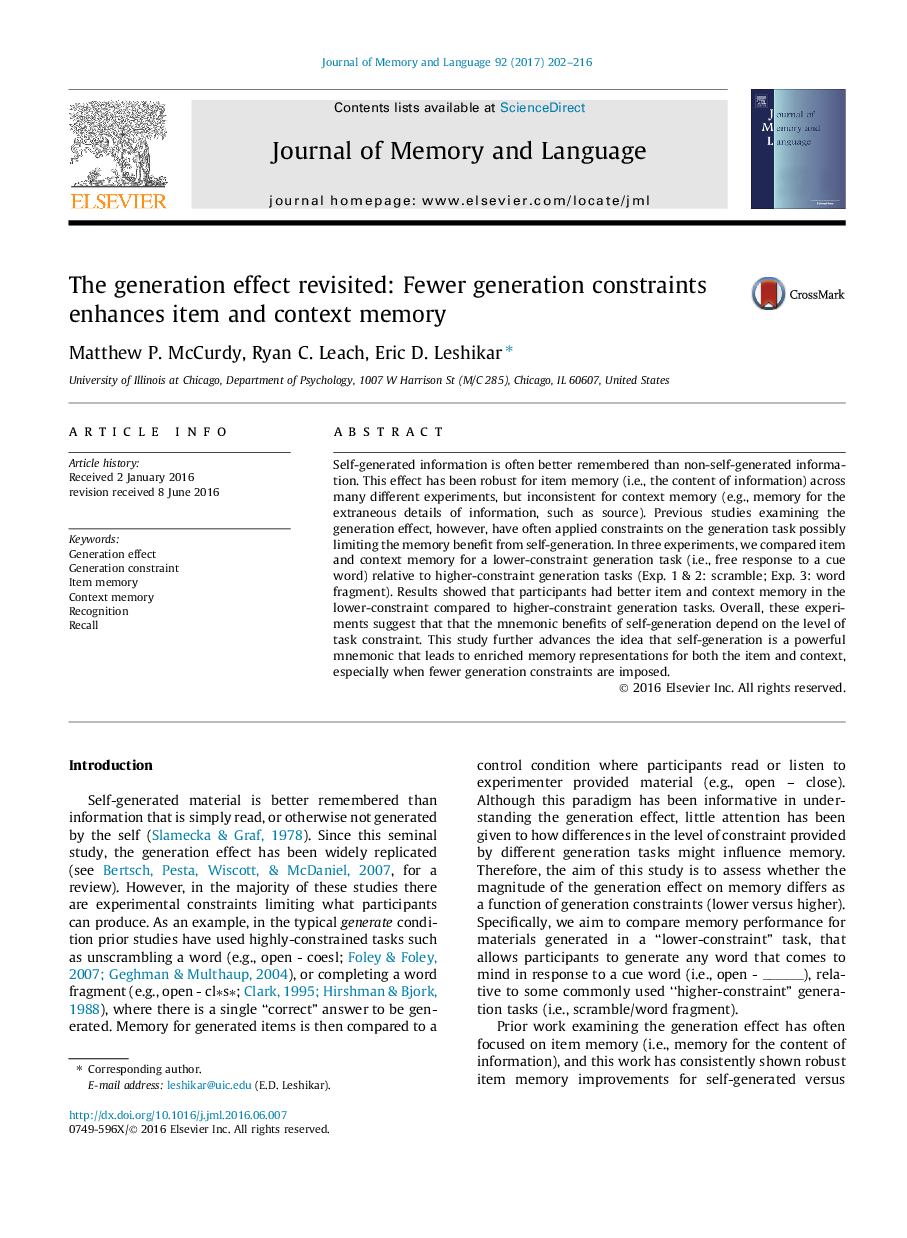ترجمه فارسی عنوان مقاله
اثر نسل بازبینی شده: محدودیت های نسل کمتر باعث بهبود حافظه مورد و زمینه می شود
عنوان انگلیسی
The generation effect revisited: Fewer generation constraints enhances item and context memory
| کد مقاله | سال انتشار | تعداد صفحات مقاله انگلیسی |
|---|---|---|
| 155488 | 2017 | 15 صفحه PDF |
منبع

Publisher : Elsevier - Science Direct (الزویر - ساینس دایرکت)
Journal : Journal of Memory and Language, Volume 92, February 2017, Pages 202-216
ترجمه کلمات کلیدی
اثر نسل، محدودیت تولید حافظه مورد، حافظه اصلی، به رسمیت شناختن، به خاطر آوردن،
کلمات کلیدی انگلیسی
Generation effect; Generation constraint; Item memory; Context memory; Recognition; Recall;
ترجمه چکیده
اطلاعات تولید شده اغلب بهتر از اطلاعات غیر تولید شده است. این اثر برای حافظه مورد (مثلا محتوا اطلاعات) در بسیاری از آزمایشهای مختلف، اما ناسازگار برای حافظه متنی (مثلا حافظه برای جزئیات غریزی از اطلاعات، مانند منبع)، قوی است. با این حال، مطالعات قبلی بررسی اثر نسل، اغلب محدودیت هایی را در کار تولید ایجاد می کند که ممکن است مزایای حافظه را از نسل خود محدود کند. در سه آزمایش، ما مقیاس مورد و حافظه برای یک کار تولید نسبی محدود (یعنی واکنش آزاد به یک کلمه نشانه) را نسبت به کارهای تولید نسبی محدود (مقیاس 1 و 2: تقلا؛ نتیجه 3: قطعه کلمه) مقایسه کردیم . نتایج نشان داد که شرکت کنندگان حافظه مورد و حافظه را در محدودیت پایین تر نسبت به وظایف تولید محدودیت محدود تر می کنند. به طور کلی، این آزمایشات نشان می دهد که مزایای انحنا نسل خود بستگی به سطح محدودیت کار دارد. در این تحقیق بیشتر این ایده را مطرح می کنید که نسل خود یک منجم قدرتمند است که منجر به بازنمایی های حافظه غنی برای هر دو مورد و زمینه می شود، به ویژه هنگامی که محدودیت های نسل کمتری اعمال می شود.

